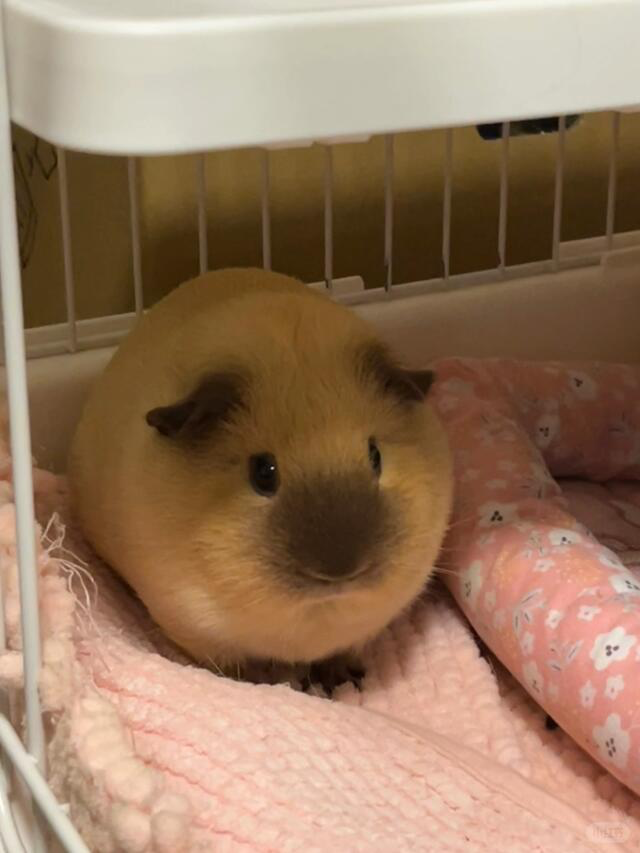 Guinea pigs have captured the hearts of pet lovers worldwide with their gentle nature, adorable squeaks, and endearing personalities. These charming rodents make excellent companions for families, children, and first-time pet owners. Despite their small size, guinea pigs offer big personalities and form strong bonds with their human caregivers. Understanding their needs, behavior, and care requirements ensures you can provide the best possible life for these delightful creatures.
Guinea pigs have captured the hearts of pet lovers worldwide with their gentle nature, adorable squeaks, and endearing personalities. These charming rodents make excellent companions for families, children, and first-time pet owners. Despite their small size, guinea pigs offer big personalities and form strong bonds with their human caregivers. Understanding their needs, behavior, and care requirements ensures you can provide the best possible life for these delightful creatures.
Origins and Characteristics
Guinea pigs, scientifically known as Cavia porcellus, originated in the Andean regions of South America. Despite their name, they have no connection to pigs and never lived in Guinea. The name likely derives from the pig-like squealing sounds they make and the historical shipping routes through Guiana. Ancient civilizations domesticated these animals over 3,000 years ago, initially raising them for food. European traders brought guinea pigs to Europe in the 16th century, where they quickly became popular pets among the aristocracy.
Adult guinea pigs typically weigh between two and three pounds and measure eight to ten inches long. They possess compact, rounded bodies covered in various coat types. Short-haired breeds feature smooth, glossy fur that requires minimal grooming. Long-haired varieties display flowing locks that need daily brushing to prevent tangles and matting. Some breeds showcase unique characteristics like rosettes, creating cowlick patterns throughout their coat, or rex fur with a distinctive wiry texture.
These social animals communicate through an impressive range of vocalizations. They produce high-pitched wheeks when excited about food, purr contentedly when happy, and emit rumbling sounds during social interactions. Their expressive nature makes them engaging pets who actively interact with their owners. Guinea pigs also demonstrate remarkable intelligence, learning to recognize their names, respond to calls, and even perform simple tricks with patient training.
Housing and Environment
Creating a proper living space ranks among the most important aspects of guinea pig care. These active animals need spacious enclosures that allow movement, exploration, and exercise. A single guinea pig requires a minimum cage size of 7.5 square feet, while pairs need at least 10.5 square feet. Larger spaces promote better health and happiness, so provide the biggest enclosure your space and budget allow.
Avoid wire-bottom cages that can injure delicate feet and cause painful conditions like bumblefoot. Choose solid-floored enclosures lined with absorbent bedding. Paper-based bedding, fleece liners, or aspen shavings work excellently. Never use cedar or pine shavings, as these contain aromatic oils that damage guinea pig respiratory systems. Change bedding regularly to maintain cleanliness and prevent ammonia buildup from urine.
Guinea pigs need environmental enrichment to stay mentally and physically healthy. Provide hiding spots like wooden houses, fabric tunnels, or cardboard boxes where they can retreat for privacy and security. Include chew toys made from safe woods or hay to satisfy their natural gnawing instincts and keep teeth properly worn. Ramps, platforms, and safe toys encourage exercise and prevent boredom.
Temperature control matters significantly for guinea pig health. These animals thrive in temperatures between 65 and 75 degrees Fahrenheit. They cannot tolerate extreme heat or cold. Keep cages away from direct sunlight, drafty windows, heating vents, and air conditioning units. During summer months, provide ceramic tiles or frozen water bottles wrapped in towels for cooling. In winter, add extra bedding and hideaways for warmth.
Nutrition and Diet
Proper nutrition forms the foundation of guinea pig health. Unlike most mammals, guinea pigs cannot produce vitamin C naturally and must obtain it through diet. Fresh, high-quality timothy hay should comprise the majority of their diet, available at all times. Hay provides essential fiber for digestive health and helps wear down continuously growing teeth.
Supplement hay with fresh vegetables daily. Offer vitamin C-rich options like bell peppers, kale, parsley, and romaine lettuce. Introduce new vegetables gradually to prevent digestive upset. Avoid iceberg lettuce, which lacks nutritional value and can cause diarrhea. Limit fruits to occasional treats due to high sugar content.
Commercial guinea pig pellets provide additional nutrition. Choose plain timothy hay-based pellets fortified with vitamin C. Adult guinea pigs need approximately one-eighth cup of pellets daily. Avoid pellets containing colorful bits, seeds, or dried fruit, as these add unnecessary calories without nutritional benefits. Check expiration dates regularly, as vitamin C degrades quickly in pellet form.
Fresh water must always be available. Use water bottles with metal sipper tubes rather than bowls, which collect bedding and waste. Clean and refill bottles daily to ensure freshness. Check that the sipper tube functions properly and your guinea pig knows how to use it.
Health and Social Needs
Guinea pigs thrive on companionship and should never live alone. These highly social animals become lonely and depressed without same-species friends. Keep pairs or small groups of the same gender to prevent unwanted breeding. Introduce new guinea pigs gradually in neutral territory, supervising interactions until they establish harmonious relationships.
Regular health monitoring helps catch problems early. Check your guinea pig daily for changes in appetite, activity level, or bathroom habits. Watch for signs of illness like discharge from eyes or nose, labored breathing, weight loss, or lethargy. Schedule annual veterinary checkups with an exotic animal specialist experienced in treating guinea pigs.
Common health issues include dental problems, respiratory infections, and skin conditions. Overgrown teeth cause eating difficulties and require veterinary trimming. Upper respiratory infections demand prompt treatment with appropriate antibiotics. Fungal infections or parasites affecting skin need specific medications. Never attempt to diagnose or treat serious conditions at home.
Guinea pigs typically live five to seven years with proper care, though some reach ten years or more. This substantial lifespan represents a significant commitment. Before adopting guinea pigs, ensure you can provide consistent, quality care throughout their lives. These wonderful animals reward dedicated owners with years of joy, affection, and entertainment, making them truly special companions in the world of small pets.
 มณฑลซานตง Vlink Pet Products Co., บจก.
มณฑลซานตง Vlink Pet Products Co., บจก.


